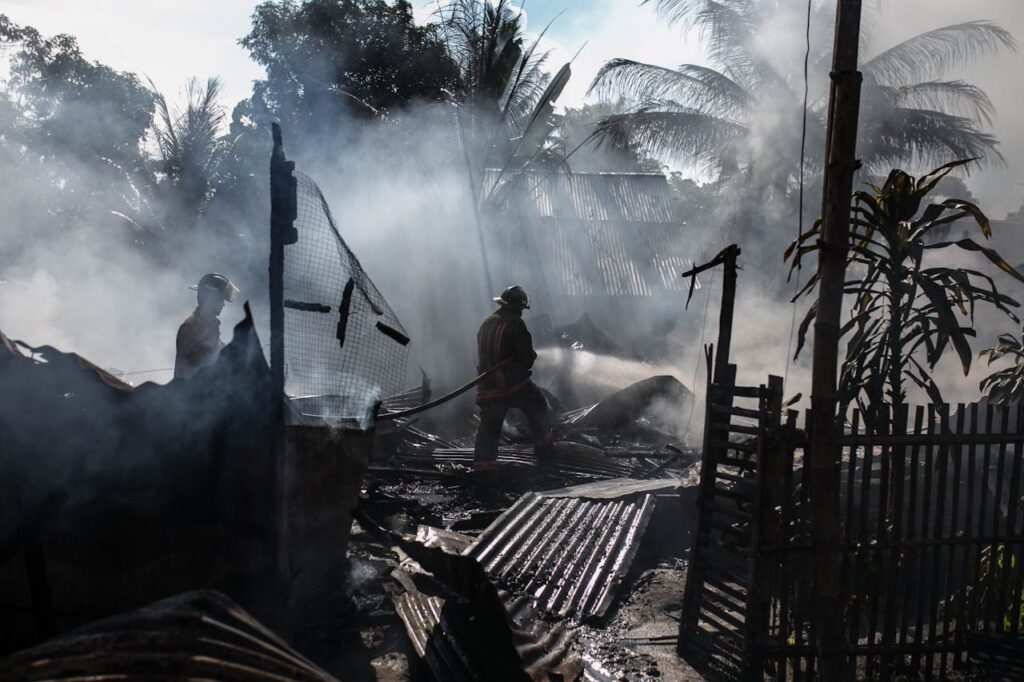When Disaster Strikes: How an Accountant Can Help After a House Fire
Share On Social

The recent devastating fire in Los Angeles serves as a harsh reminder that disaster can strike when we least expect it. Whether it’s wildfires in California or a house fire right here in Texas, the aftermath can feel overwhelming. As you navigate insurance claims, financial recovery, and potential tax implications, an accountant can be a vital resource to help you get back on your feet.
Maximizing Insurance Claims and Financial Recovery
After a fire, dealing with insurance companies can be an exhausting process. While your insurance may cover damages, are you sure you’re receiving the full amount you’re entitled to? An accountant can:
- Analyze your settlement to ensure all losses are properly accounted for.
- Help with loss documentation to provide clear financial records to your insurer.
- Assist in budgeting for temporary housing and rebuilding costs so you don’t overspend or underutilize your resources.
For example, a Marble Falls homeowner recently faced a total loss when their house caught fire. They received an initial insurance offer that seemed sufficient but, after consulting with an accountant, realized several structural losses and personal property values were underreported. With proper documentation, they secured a higher payout to cover their true losses.
Tax Considerations: Can You Claim a Loss?
Many homeowners are unaware that fire losses may have tax implications. If your insurance payout doesn’t fully cover your losses, you may be eligible for a casualty loss deduction on your federal tax return. However, the rules can be complex. An accountant can:
- Determine whether you qualify for a deduction under IRS guidelines.
- Help report any insurance proceeds correctly to avoid unexpected tax liabilities.
- Identify state or federal relief programs you may qualify for.
Consider the 2017 Texas wildfires: Many affected homeowners claimed casualty loss deductions, reducing their tax burden during an already difficult time. If your home has been damaged or lost in a fire, have you considered how tax laws might impact your financial recovery?
Are you financially prepared for the unexpected? Let’s start the conversation today.
Rebuilding Financial Stability After a Fire
A house fire doesn’t just destroy property—it disrupts lives. From missing work to replacing everyday essentials, the costs add up fast. Your accountant can help:
- Manage cash flow to ensure you can afford necessary expenses while waiting for insurance payouts.
- Advise on financing options, such as disaster relief loans or home equity solutions.
- Track expenses for potential tax write-offs related to rebuilding.
A couple in Texas who lost their home in a fire found themselves facing high construction costs due to rising materials prices. Their accountant helped them explore tax credits and deductions that offset some of the rebuilding expenses. Have you considered whether hidden tax savings could help you rebuild faster?
Protecting Your Financial Future
Recovering from a disaster is about more than just today—it’s about securing your financial future. An accountant can help you:
- Review your homeowners’ insurance policy to ensure you’re adequately covered for the future.
- Adjust your financial plan to rebuild savings and retirement contributions.
- Prepare for potential audits by ensuring all insurance claims and tax filings are properly documented.
At Valentine & Associates, CPA, we understand that financial recovery after a fire is more than just numbers—it’s about rebuilding your life. If you or someone you know has been affected by a house fire, we’re here to help navigate the financial road ahead.
Are you financially prepared for the unexpected? Let’s start the conversation today.




